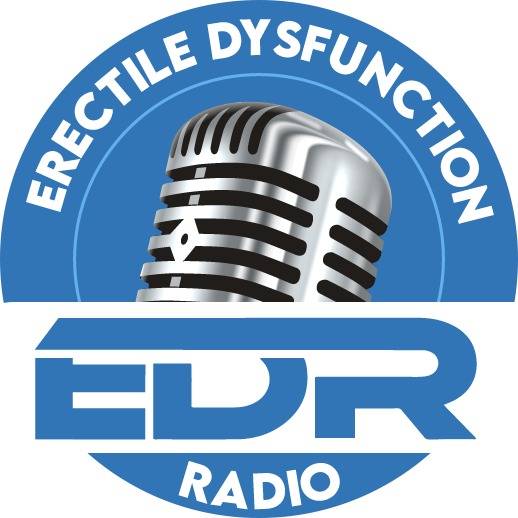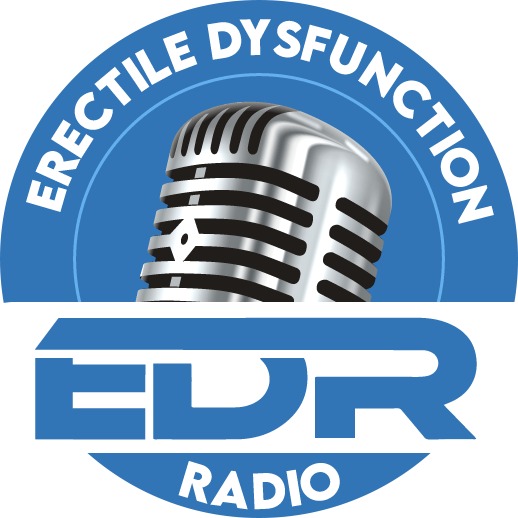
Listen to Sexually Transmitted Diseases (STDs) and Erectile Dysfunction through the podcast player above.
Erectile Dysfunction Radio Podcast
Today’s episode is about sexually transmitted diseases (STDs) and erectile dysfunction. STDs are also know as sexually transmitted infections and can have an affect on erectile dysfunction.
This podcast is dedicated to educating and empowering men to address erectile dysfunction, improve confidence, and enhance the satisfaction in their relationships. This podcast is hosted by certified sex therapist, Mark Goldberg, LCMFT, CST.
Transcript of Episode 18 – Sexually Transmitted Diseases (STDs) and Erectile Dysfunction
 Sexual activity can be extremely enjoyable. Many men will seek to engage with sexual partners, and will find that form of activity to be more meaningful and pleasurable, but partnered sexual activity is not always easy and simple.
Sexual activity can be extremely enjoyable. Many men will seek to engage with sexual partners, and will find that form of activity to be more meaningful and pleasurable, but partnered sexual activity is not always easy and simple.
Men can have a multitude of concerns about partnered sexual activity that can contribute to erectile dysfunction. One of these areas is sexually transmitted diseases, more commonly referred to as STD’s.
Before we get started, I want to be clear that if you think you have an STD, you should visit your physician. STD’s can often be treated or managed, and without intervention they can progress to more serious physical issues, potentially impacting erectile function.
The exact processes that allow STD’s to impact the physiological erection process are beyond the scope of this episode, but it is important to know that it is rare. What more commonly impact erections is the fear and the worry about STD’s.
We live in a culture where sex can occur without knowing your partner very well, whether through meeting partners in person or through dating apps. Hook-up culture means that sexual activity can occur before knowing your partner’s last name, let alone his or her sexual history.
Well, this can have erotic appeal to some people, for many, this is an anxiety-provoking process and can raise concerns about STD’s. As we have emphasized in previous episodes, a man needs to be comfortable and relaxed in order to optimize the environment for erections. Fears and worry about STD’s are often enough to disrupt a reliable erection process.
I don’t mean to say that if you have genuine concern about contracting an STD, you should ignore or soothe your fears in order to be able to gain and maintain an erection. That’s just foolish. You need to take steps to protect yourself, but if you have concerns about disease, if you’re feeling worried about a partner and you do not achieve an erection, relax and don’t internalize it.
Fear and worry are mechanisms designed to protect you. At times, they are warranted, and at other times they are not. Concerns that are warranted, should be taken seriously, but should stay within the context of this particular partner.
Not getting an erection in those instances makes sense. It is protective and it’s okay. It is likely not a general issue for you, and it won’t be if you don’t allow it to be.
If the worry about disease is manifesting in other situations, if you are worried about STD’s with each and every partner, your fears may be unwarranted. Fear and worry often extends beyond the original triggers and needs to be addressed in order to continue gaining and maintaining erections.
There are a number of situations that can arise with regard to STD’s and erectile dysfunction. The first is when a man has contracted an STD, as we’ve already mentioned, STD’s should be treated by a

medical professional, you should not engage in unprotected sexual activity and should strongly consider your ethical obligations to a potential partner.
While experiencing symptoms and treatment for STD’s, it is understandable that sexual activity can be of little interest as well as a decrease in the frequency of erections. In turn, masturbation or other forms of solo activity may not be of interest as well.
If you have an STD and are experiencing erectile dysfunction when you’re with a partner, there are two things to consider. If your partner does not know about your STD, are you feeling guilty? If your partner knows about it and insists on having sex anyways, are you worried about harming them?
The second scenario in which a man can be impacted by STD’s is that a man thinks he has an STD despite negative tests and consultation with a doctor, this is a more common scenario. A man has a sexual encounter with a partner and experiences real or perceived sensations or thinks he notices a growth, a rash, or a mark that was not previously there.
He visits his doctor, completes an STD panel, and despite being told that everything is okay, continues to believe that he has in fact contracted an STD. The stress and panic lead to preoccupation whenever there are even the most remote sexual stirrings in the genitals.
This can be even more pronounced when trying to engage with a partner, when someone else is providing physical stimulation, the chances of feeling unfamiliar sensations increases and can induce panic and lead to erectile dysfunction.
The third situation is when a man learns that a partner that he was with, or is currently with, has an STD. There are times when a man will be sure that he himself does not have an STD, but becomes aware that his partner has one. If a man is currently with that partner, it is understandable that a number of concerns that impact erections can come up, including how the partner contracted the disease, trust, and whether the relationship will even continue.
Even if this couple decides to stay together, erections can be impacted by fear of contracting the disease from the partner. If a man is not in a relationship with that partner who has an STD, he may develop a fear of engaging with future partners and avoid partnered sexual activity.
More commonly, attempts to engage, are filled with worry and fear preventing a man from achieving an erection in the moment.
 The fourth scenario is when a man is afraid that a partner has an STD based on appearances alone. Men who have experienced a partner disclosing an STD are more likely to notice things on other partners. These men can mistake birth marks, in-grown hairs, pimples and even shadows as a potential STD.
The fourth scenario is when a man is afraid that a partner has an STD based on appearances alone. Men who have experienced a partner disclosing an STD are more likely to notice things on other partners. These men can mistake birth marks, in-grown hairs, pimples and even shadows as a potential STD.
This can be devastating to the pleasure and comfort needed to gain and maintain an erection.
I’ll share with you just a brief case study, about a client named Nate, who is a 24-year-old male and has been experiencing ED over the past month. He ended a relationship with his girlfriend of four years, and he’s been having sexual encounters with different partners over the past few months.
He shared that one of his partners recently called him and informed him that she had chlamydia, a common STD at the time they had sex.
Nate has only been able to achieve an erection on his own, but has experienced loss of erection with partners when transitioning to penetrative sex. Despite not having any symptoms, Nate visited his doctor and tested negative for STD’s.
Nate chose to meet with a therapist to process the break up with his girlfriend and identified the importance of knowing more about the partners that he’s with and being able to trust them. He addressed his cognitive distortions about STD’s and was able to focus on finding a more stable relationship and avoid hook-ups that raise his anxiety and fears.
These issues are very common. You are not alone. Taking a few steps in the right direction can make a significant difference in helping you return to reliable erections and satisfying partnered sex.
Subscribe to our Podcast
Find all of our ED Radio Podcast episodes categorized by topic here, or find and subscribe to us for free on Apple Podcast/iTunes, Spotify and YouTube.
Ready to Learn More?
To start your in-depth approach to resolving ED, try our online learning course called BEYOND THE LITTLE BLUE PILL, The Thinking Man’s Guide to Understanding and Addressing ED.

Ready to talk to an ED expert? Erection IQ founder Mark Goldberg helps men resolve erectile dysfunction. He offers individual, one-on-one services to men throughout the world through a secure, telehealth platform. It’s 100% confidential. You can visit the Center for Intimacy, Connection and Change website to
Schedule A Consultationwith Mark.




